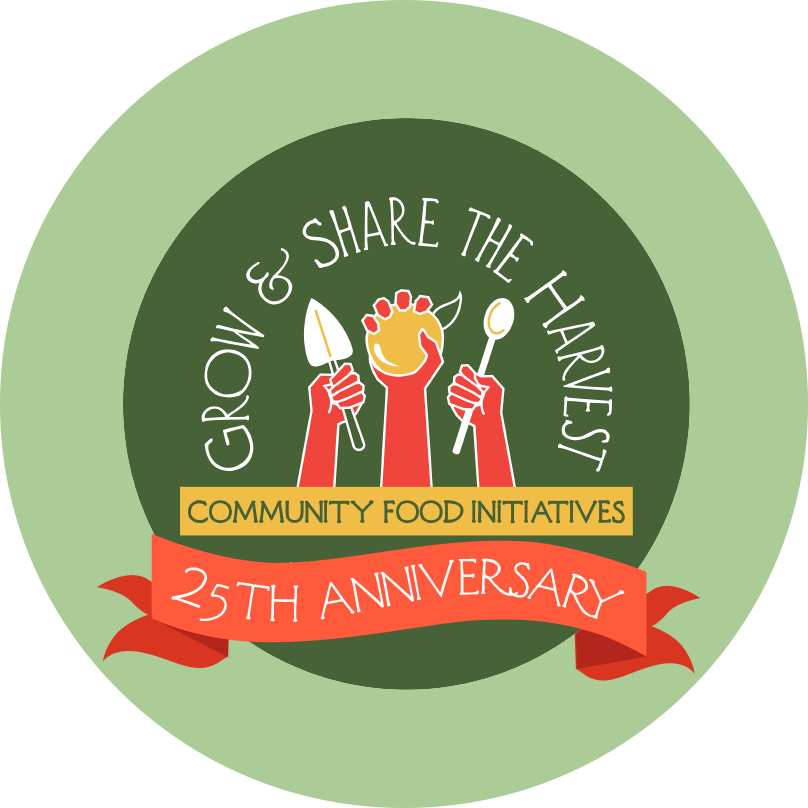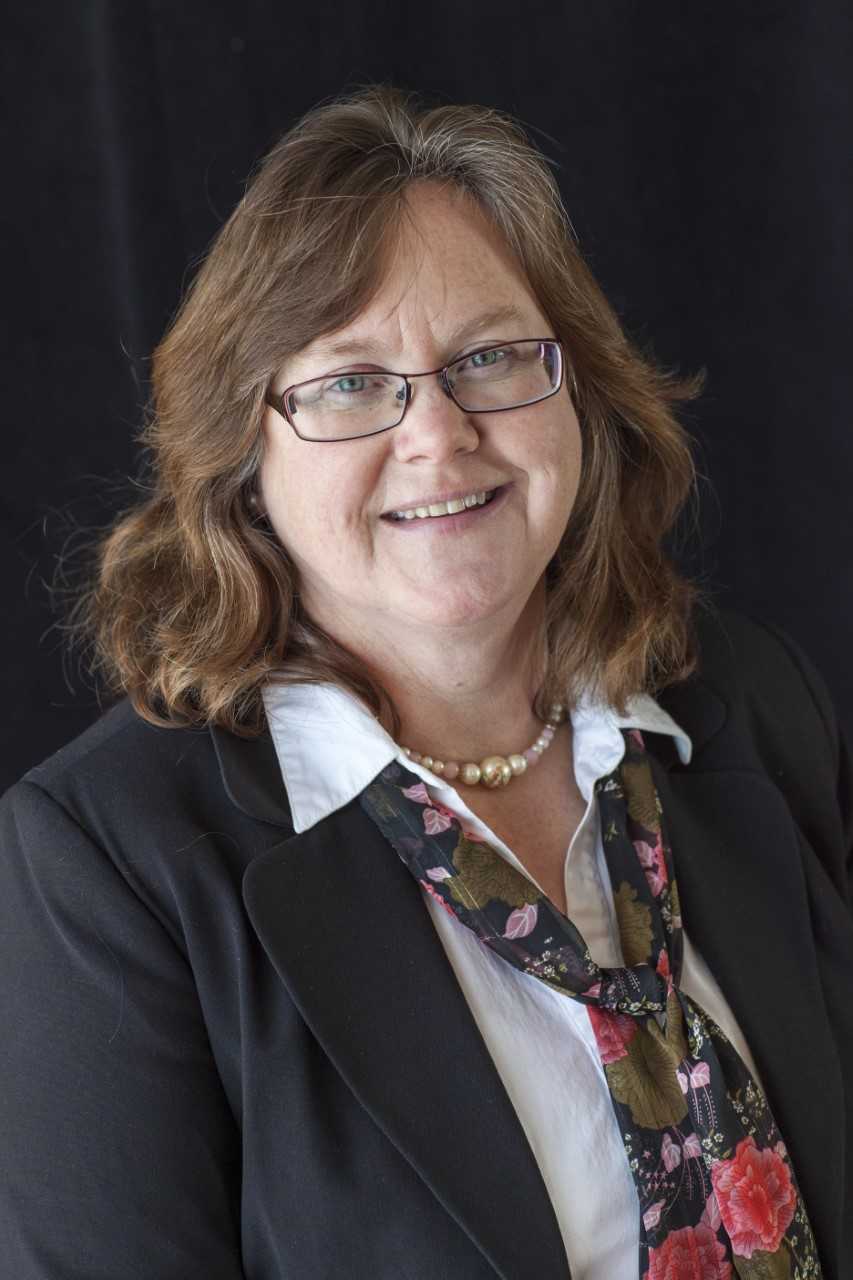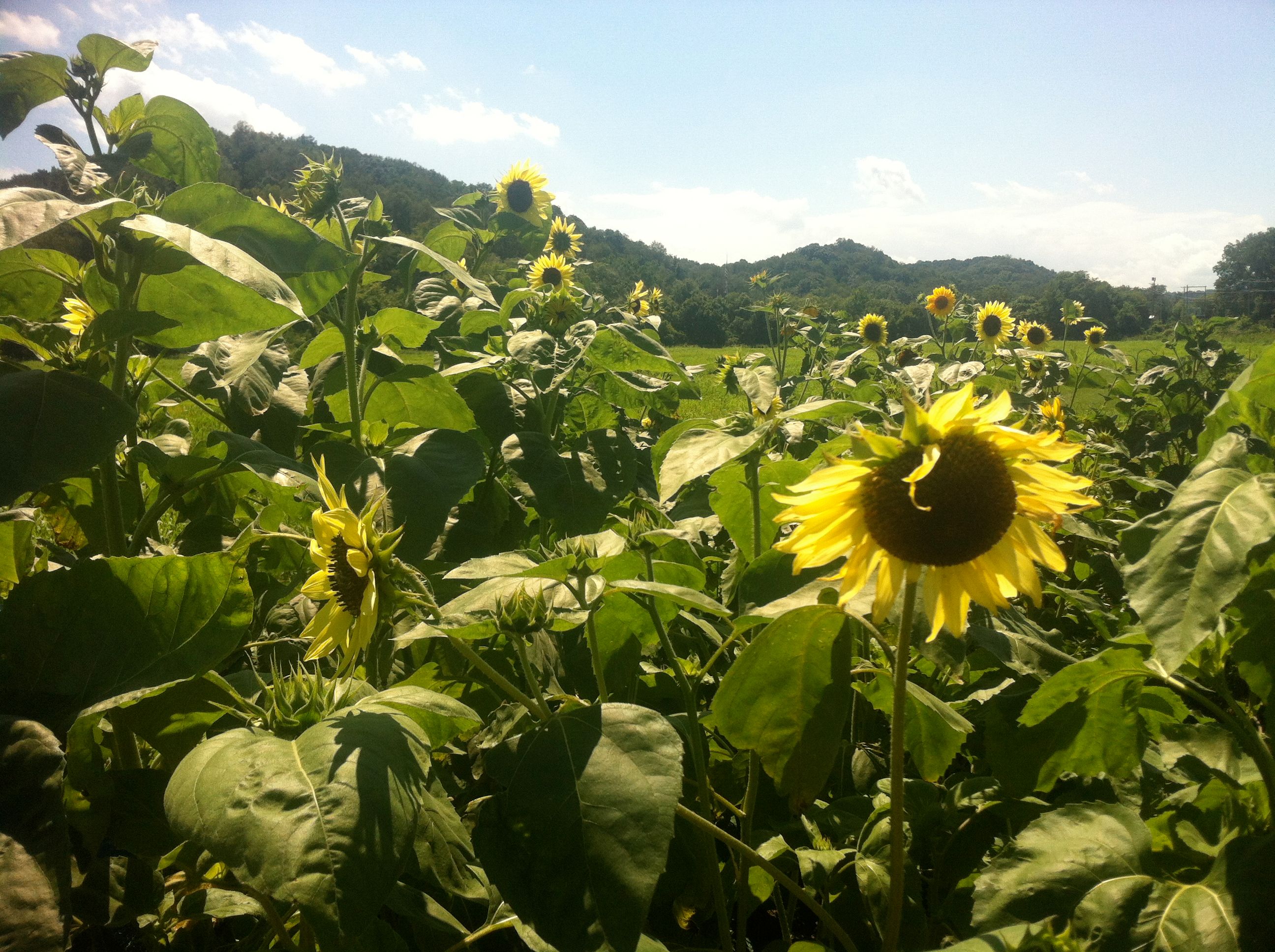
For the past 25 years, Community Food Initiatives has been an integral part of the local food economy. In celebrating this milestone for our organization, we are reconnecting with some of our past staff, and we will be sharing their stories over the next several months and “Exploring our Roots.”
This month we spoke with Barb Harrison, the Assistant Director of the Campus Involvement Center at Ohio University. Barb helps place interested OU students as volunteers and interns with CFI. Our student interns and volunteers are central to our work and we are very grateful to Barb for continuing to refer talented students to us! You can read more about Barb’s involvement with CFI in the interview below.

How did you get involved with CFI, and what was your role there?
My job at Ohio University is to manage the Community Engagement programs function of Campus Involvement Center. We have a number of community partners that we participate with and that we engage students and volunteer with, and CFI is one of them. They happen to be one of the ones we do a lot of volunteering with and a lot of placement of students. That’s why I’m really happy to talk about them. We have been involved in everything from helping with their community gardens around the area to placing interns with them who work through the community work study program. Those interns actually get to work a bit more than volunteers that usually go out one time.
Why do you think that CFI is a good partner for the university and for people to have internships and volunteer opportunities with?
Well, their mission is a little bit unique, I think. It really highlights some of the beauty of our community in that we have a very strong commitment and we’re very lucky to have growers in the area that are really committed to providing local, fresh, healthy food. We do know that we’re in an area where a lot of our citizens and community members need to rely on assistance programs to be able to put food on the table. The reason that I think CFI is unique and really exciting for us is because they focus on local, fresh, healthy food, and that is not often what is available at the regular food pantries just because of a number of reasons. Processed foods are the mass quantity that is generally available.
For students, I think that they really benefit from meeting CFI, understanding what they do, and volunteering because it helps highlight, for them, what a unique community we’re in. They also learn things, inevitably. Students who may not really know what a spaghetti squash is might know after they’ve worked with CFI and the donation station or the interns that have worked there. Any good service project, I think, has the component of certainly being good for the agency, but in addition, helping the volunteer really learn more about themselves and the world.
Where do you see CFI going in the future? Because of your experience in working with them and with students, what kind of impact have you seen on the community through that partnership?
Currently, they have an extremely talented executive director, so I have to give a lot of credit to Mary Nally since she’s been there. I’ve known CFI since before Mary was involved. They were successful, and they were doing similar things, but with Mary and her leadership, they have really grown by leaps and bounds. They’ve not only farther developed the gardens program and the school gardens program, but they’re able to offer the seed saving component of their non-profit in which they’ve basically developed a company that people can buy seeds from. They’re many times the kinds of seeds that you wouldn’t be able to get in a retail setting. They’re non-GMO, and they’re usually saved from farmers, so in that way, they’re providing a really unique opportunity for everybody in the community.
The YEAH! Kids program alone is just monumental, in that it works with children that are at subsidized housing apartment complexes who many otherwise not have the ability or the chance to get out and understand what it means to grow a garden. They go beyond that! They don’t just grow the garden, they harvest and then they produce foods. The teenagers that are involved in that are there every step of the way. The college students that work with them just come away with such wonderful experiences that you just can’t match.
Those are some things that I think will just continue to grow as long as they’re able to get funding. I think they’re just a really dynamic organization.
How do you think CFI contributes to the community?
The recipients of a CFI event, whether it be learning how to process the food or a class on how to can food, do things that many of our grandmothers or great-grandmothers did, and we have kind of lost that as a community. I think that they do a lot to help people realize what it’s like to be self-sustaining. I know that if there is a fee to the workshops, it’s very low. To be a member of CFI is really reasonable. I know that they’re very flexible in helping people being able to afford, so they reach a population of folks that may not be served otherwise.
Their Donation Station is an incredible program that is usually full of diverse types of plants and veggies because anyone can donate, so it’s good for the folks that are able to pay for and grow their own gardens to be able to give back and plant an extra row. The recipients also really benefit greatly from it.
Do you have specific memory that comes to mind when you think of CFI and what they do?
I think it would be through the students that have worked on the internship program with the Donation Station. I know that one of our interns had grown up in a middle-class family, but she did not really realize what certain vegetables looked like or what they were for. Through her process of being an intern, she learned a lot and now has made a lifestyle change to be more vegetarian because of her exposure to CFI. It also really dovetailed nicely with her major in social work. Maybe she started out because it was a job and she got paid through community work study, but as it went on, she now is doing her social work internship there. She still gets paid, and it has also really helped shape what kind of social work she wants to go into. I don’t think you can find a better internship experience like that, so that was really, really outstanding.
I think that CFI fills a gap, or sometimes a lack of resources overall, because we know that for folks who are eligible for snap benefits, the government subsidized amount rarely fulfills what they need for the month. We just know that; that’s factual. In other words, if families can be connected with CFI to be a recipient, just imagine how much that helps. It’s, in that way, life-saving. I would say that’s not an exaggeration. It probably is because it improves help if people are able to eat fresh, healthy food. They’re just a wonderful organization, and we’re very blessed to have them in our community.

